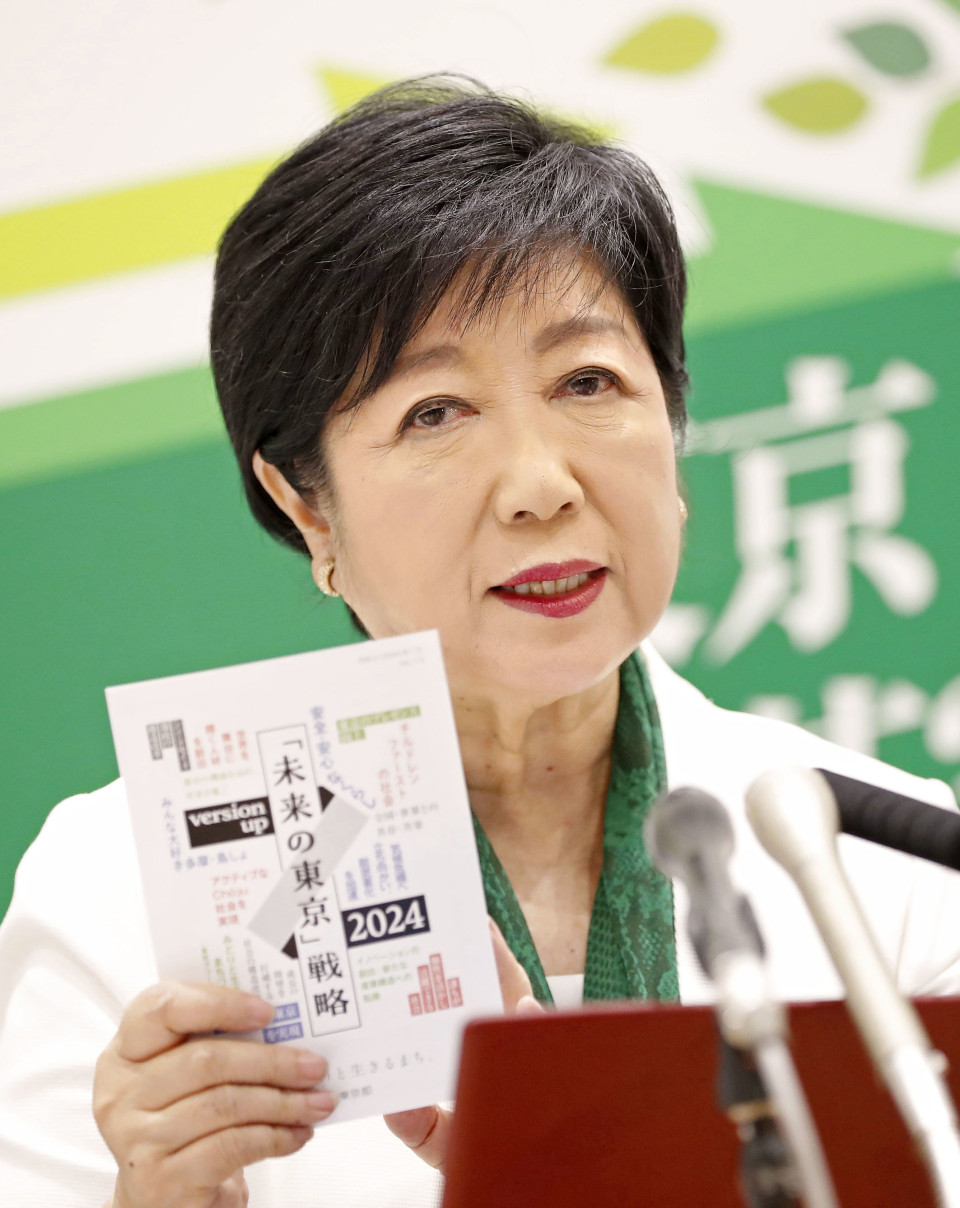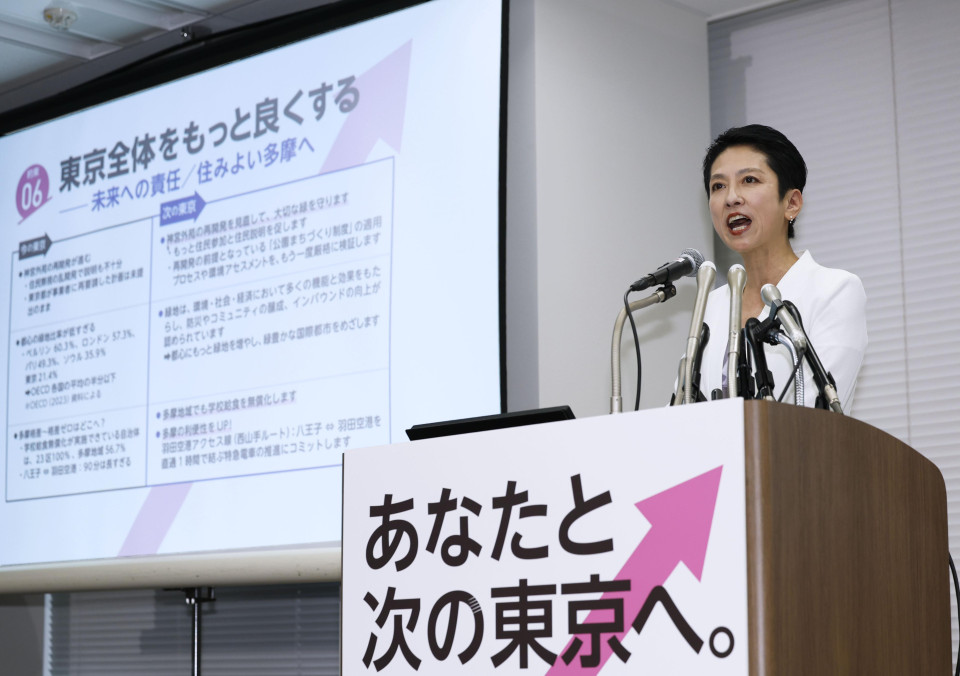Tokyo Gov. Yuriko Koike and her biggest rival, opposition-backed lawmaker Renho, clashed over how to tackle the declining birthrate as they finally unveiled their pledges for next month's gubernatorial election on Tuesday, just two days before official campaigning starts.

Koike, a conservative politician, promised to take child-rearing policies such as helping reduce rent for families, establishing subsidies for painless childbirth and waiving day-care fees for first children, instead of only for the second child onwards as is the current policy.
Renho, a House of Councillors member who has left the main opposition, left-leaning Constitutional Democratic Party of Japan to run in the race as an independent, committed to increasing the incomes of younger workers, a measure she says would help curb the falling birthrate.
The July 7 gubernatorial race draws public attention as voters can directly elect the leader of Tokyo from a diverse range of candidates. Both Koike and Renho are TV anchor-turned-politicians.
Announcing her policy pledges for the election at an online press conference, Koike said that if she wins a third four-year term, she hopes "to create a Tokyo where child-rearing and education are less costly."
Koike, 71, a former House of Representatives lawmaker of the ruling Liberal Democratic Party, became the first female Tokyo governor in 2016. During her eight years in office, she has expanded cash handouts and other aid programs for children and their families.
At a separate news conference later in the day, Renho, 56, also said she will make efforts to grapple with the decreasing birthrate as one of the key pillars of her election pledges.
While Koike would concentrate primarily on providing assistance for children, Renho said she will focus on enhancing policies to support younger generations who want to raise children in the near future.
Renho said she plans to urge companies with contracts with the metropolitan government to improve working conditions, adding, "I want to make Tokyo a city where young people, regardless of their circumstances, can study, work, get married and have children."

In Tokyo, the total fertility rate -- the average number of children a woman will bear in her lifetime -- fell to 0.99 in 2023, the lowest among Japan's 47 prefectures, compared with the national figure of 1.20, according to the central government.
Koike, who previously served as Japan's first female defense minister, also vowed to "protect the capital" by taking measures against natural disasters and setting up underground shelters to evacuate residents in case of missile strikes by foreign countries.
Meanwhile, Renho, who made her name as administrative reform minister when the CDPJ's predecessor party was in power, pledged to promote governmental and fiscal reforms as well as advance information disclosure in Tokyo.
So far, more than 40 people have shown interest in running in the election, a record number, with notable candidates including former Air Self-Defense Force chief Toshio Tamogami and Shinji Ishimaru, who was mayor of Akitakata in Hiroshima Prefecture, western Japan.
Related coverage:
Tokyo Gov. Koike to run again, setting up high-stakes Renho showdown
Japan's lower house passes political funds reform bill amid backlash
High-profile opposition lawmaker Renho to run for Tokyo governor










